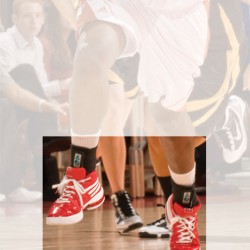More young people are focusing their efforts on excelling at a single sport, instead of playing a variety throughout the seasons. But while sports specialization is a hot topic, there is a surprising dearth of research on this issue.
In an effort to bring some clarity, a research team of UW–Madison experts collected data and produced a groundbreaking, one-year observational study published earlier this year by the American Journal of Sports Medicine. The researchers found that 36 percent of athletes were considered highly specialized, meaning that they trained in one sport for more than eight months in a year. They also determined that these athletes were more likely to report a history of knee and hip injuries.
“Physicians are way ahead of the research in this area and, anecdotally, they report that they are seeing more kids in their clinics who have injuries that used to be found only in older athletes,” says assistant professor David Bell, the report’s lead author and director of the Wisconsin Injury in Sport Laboratory. The report’s coauthors included kinesiology graduate students Eric Post PhDx’18 and Stephanie Trigsted PhDx’17, associate researcher Scott Hetzel MS’07, senior scientist Timothy McGuine MS’86, PhD’05, and associate professor Alison Brooks.
Since the original study was published, the research team has been busy replicating the initial findings with slightly younger athletes, ages 12 to 14, and larger cohorts of high school student-athletes. Bell says this work consistently shows that about 35 percent of young athletes are highly specialized — and that these athletes are two to three times more likely to have a knee or hip injury.
Asked if there is a consistent takeaway from this work for parents, Bell says simply, “Make sure your children are getting breaks in competition.”
Bell hopes to build on these findings and share future research results with young athletes, parents, and coaches. “There are so many great aspects to sports participation, and we don’t want this information to scare athletes or parents,” he says. “We just want them to be wise consumers and to participate as safely as possible.”




Comments
No comments posted yet.